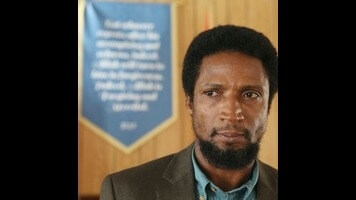It’s not that there aren’t moments of quiet victory in the episode, there are several. Alonzo and Tony and Jenny are able to communicate and grow as a family, having level-headed talks about what the future holds for them all and understanding that not being together doesn’t necessarily mean not being united. Hector, finally being tried for his crimes in Mexico is ultimately released when the prosecution can’t produce their eyewitness and the break allows him to find a promising new job in a call center. Even Gwen, still recovering from her extensive injuries, finds peace in the back of her parents car, the same place she was happiest all those months ago.
But are those moments of victory particularly deserved? Are the people who benefit from them more deserving of peace than those who got the shorter end of the stick? Or is life just random chance, save for the chance that the deck is almost always stacked against some individuals more than others?
After being cleared of the charges, thanks to Aubry’s confession, Carter attends service with Aliyah, speaking to the gathered individuals about his life and the mistakes he’s made. He visits Aubry in jail, once he finally learns of her sacrifice and vows to himself he’ll try to make something better of the days ahead of him than he did of the ones behind him. He goes to a bar, orders a beer, but can’t drink it. He leaves, slipping back into old habits, calling Aubry at the hospital, but before he can speak to her Russ puts a bullet in his brain.
With Carter dead, it was only a matter of time before Aubry went, too. But before she does, we see her sneaking out through an open door, looking for the abandoned room where Carter’s body is laid out. She walks past the nursery, pausing to press her hand to the glass, smiling at the babies of every shade wriggling and weeping and sleeping behind the glass, not knowing what their lives have in store for them. She reaches Carter eventually and he gasps, alive, and a nurse rushes in, crying loudly for help. But, as Carter told her earlier in the episode, Aubry’s imagination has always been magical and this moment of catharsis is merely a dream before dying. The yelling nurse actually screaming for help at Aubry’s side, kneeling in a puddle of blood from the young woman’s open wrists.
And Russ, too, having followed through on the innate promise of Barb’s Pavlovian gun, puts himself out of misery before the police can take him into custody for Carter’s murder. Having seen what the future held for himself with regards to his family, his life, it does seem the only logical choice.
Did Aubry and Russ and Carter deserve to die? And did Hector and Tony and, to a lesser extent, Gwen, deserve second chances? Did Barb and Mark deserve to have to bury another family member? Yes. No. Maybe. It’s impossible to tell. But moreover, it would have been impossible to ever tell. We feel comfortable looking at the lives of others and deciding what seems right but often it’s merely a reflection of how fair it feels to us, personally. What was fair to Aliyah and what was fair to Barb was always going to be at odds with each other because perception is highly personalized and subjective.
So at the close of American Crime’s first season, there’s really only one fate left to be determined: that of the audience. But even that seems pretty clear. An audience tunes in to see the resolution of a conflict, in this case, the murder and attack on Matt and Gwen Skokie. People were accused and released, someone confessed, though one could never be certain she was telling the truth, and many people ended up dead. But was there justice for the crime perpetrated? Was there an answer we can stand by and feel a sense of closure to? No. Not really. But maybe that’s the point. Maybe in America crime is not and open and closed story, no matter what Law & Order might have you believe. It’s merely a tale that spins itself out, pulling ever more people into its web, before spitting them back into the world half-digested or worse.
Who doesn’t want a second season of that?
Stray observations:
- While I guess it was never that kind of show, I’m still disappointed that Gwen didn’t regain her memory and explain everything that happened that night in a rough approximation of the last 90 seconds of any given Scooby Doo episode.
- Aliyah and Aubry’s foster mother sharing a weepy hug was very touching.
- I’m happy that Barb seemed to have hit rock bottom and come up toward being a better person. I hope she can continue that trajectory.
- Poor Russ. I feel bad for him (as bad as you can feel for a cold-blooded murderer) but he clearly had nothing left in his life to live for.
- Thanks for joining me for the first season of American Crime. I wonder what they’ll tackle next season.














![HBO teases new Euphoria, Larry David, and much more in 2026 sizzle reel [Updated]](https://img.pastemagazine.com/wp-content/avuploads/2025/12/12100344/MixCollage-12-Dec-2025-09-56-AM-9137.jpg)


























